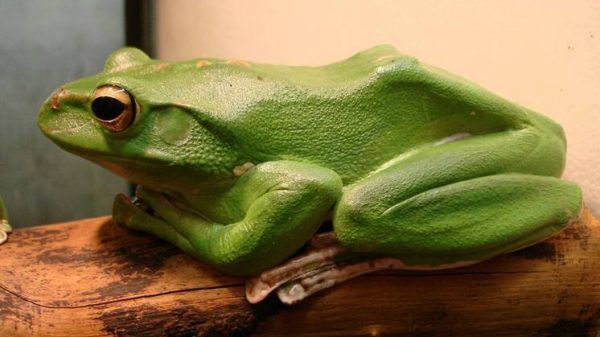Hippos imported illegally into Colombia for Pablo Escobar’s private zoo have gone feral in the lush tropical countryside and must be culled before their invasive presence starts to wipe out indigenous flora and fauna, scientists have warned.
One of the notorious drug lord’s great extravagances saw him amass a collection of hippos, kangaroos, giraffes, elephants and other exotic animals in his hacienda fortress from where he established the world’s biggest cocaine empire in the 1980s.
When he was hunted down and killed by police in 1993 many of the animals were rounded up or died.
Pablo Escobar’s ‘cocaine hippos’ show how invasive species can restore a lost world
Read more
But the hippos were abandoned on the sprawling Hacienda Napoles due to the cost and logistical issues associated with transporting the huge animals and the violence that plagued the area at the time.
Government attempts to control their reproduction have had no real impact on population growth, with the number of hippos increasing in the last eight years from 35 to somewhere between 65 and 80.
A group of scientists is warning that the hippos pose a major threat to the area’s biodiversity and could lead to deadly encounters with humans. They say the hippos must be culled or their numbers could reach around 1,500 by 2035.
“I believe that it is one of the greatest challenges of invasive species in the world,” said Nataly Castelblanco-Martínez, an ecologist at the University of Quintana Roo in Mexico and lead author of the group’s study.
The idea of culling the herd has already drawn some criticism. There was an outcry years ago when three hippos wandered from the Escobar compound and one was killed by hunters.
The local people have embraced the hippos as their own, in part because of the tourist dollars they bring in as they roam the estate turned theme park and surrounding area.
The scientists began working on the hippo population forecast in 2020 after one of the animals chased and severely injured a farmer. Their study was published in the journal Biological Conservation in January.
‘No predators, plenty to eat’: New Zealand struggles with plague of peacocks
Read more
Another study in 2020 by researchers at the University of California San Diego found the hippos are changing the quality of the water in which they spend much of their time and defecate. As their population continues to grow they could end up displacing native animals like Antillean manatees, Castelblanco-Martinez said.
The hippos thrive in the fertile region lying between Medellín and Colombia’s capital, Bogotá. They live in the area around the Rio Magdalena – the Mississippi river of Colombia – spending the day mostly in the lakes and waterways and the night roaming endless grass pastures. Unlike in their native Africa they have no natural predators in Colombia.
“About 10 years ago we realised that we have a giant population of hippopotamuses. We began to learn how the population was constituted, to see if there was an immediate solution,” said David Echeverri-Lopez, a researcher at the regional environmental agency that oversees the hippos. “We really began to realise the dimensions of the problem.”
While Echeverri agreed that culling the hippos would be the best solution, he said the animals’ magnetic personality and a government ban on hunting them complicated the matter.
The government has tried sterilisation but it is a complex and expensive process. First an animal must be tricked into entering a huge metal corral to be sedated. Then a team of wildlife experts must spend about three hours cutting through the animal’s thick skin and trying to find its reproductive organs.
“The community keeps an eye on us to make sure that we are actually sterilising [the hippo] and not doing anything else,” said Gina Serna-Trujillo, a veterinarian who has conducted some of the sterilisations. “They love them.”
Castelblanco understands the appeal of hippos, even describing a baby hippo as “the most beautiful thing in the world” but said the discussions over their future in Colombia should not be ruled by warm feelings the animals generate.
“We have other invasive species in Colombia that have undergone normal protocols, and no one ever makes a fuss because they are fishing lionfish,” she said referring to a fish native to the Indo-Pacific that is an invasive species in the Atlantic Ocean.
“You can’t even talk about [culling hippos] because the rejection is staggering … I am being called a murderer.”






















































Свежие комментарии